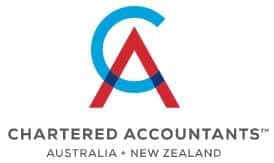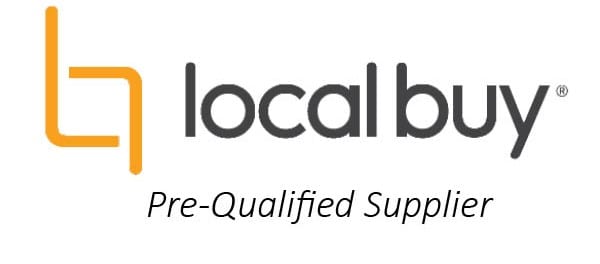Article by Managing Director, Steve Watson.
In Part 1 of this series on auditors and independence, I outlined some of the challenges facing the audit industry with a number of reviews underway both in Australia and Internationally.
Not a week goes by without further news relating to concerns over conflict of interest associated with accounting firms who take on audit clients. On 21st October 2019, AFR reported that PwC UK had been accused of conflict of interest for advising executives at Thomas Cook on their pay and bonuses while they were, at the same time, the auditor of the now collapsed travel group. Feedback from industry heavyweights was that PwC had engaged in a clear conflict of interest.
It’s clear that matters that initially came to a head with the collapse of Enron in 2001 and the subsequent dissolution of Arthur Anderson are still of significant concern to the audit industry. The Australian Parliamentary Inquiry into Audit Quality continues to identify concerns, especially with the major accounting firms.
The brief of the Parliamentary Inquiry has extended to potential conflict of interest with other services with ASIC expressing concern about insolvency firms being bought by ‘full service accounting practices.’ (AFR, 18th October 2019, reference to PwC purchase of PPB Advisory in mid-2018 and KPMG’s acquisition of Ferrier Hodgson in early 2019).
In their submission, ASIC suggested areas for improvement relation to guidance including ‘financial instrument valuation, sampling, setting materiality, substantive analytical procedures, management experts and the use of the auditor’s own experts … where risk is low.’
Clearly in a market where there’s increasing demand for specialist advisory and consulting services, accounting firms are being faced with the choice of providing consulting or audit services to key clients. Already at an international level, we’re seeing formal separation of these roles with a number of firms including BDO UK developing plans to split their audit and non-audit businesses.
In the last month, CAANZ together with ACCA and IFAC published a position paper ‘Audit quality in a multidisciplinary firm’ which provided a strong argument for the value of a consolidated approach to financial services delivery by accounting firms. The report made its position clear by stating that ‘most existing peer reviewed research points towards an increase in audit quality in cases where a firm offers both audit and non-audit services because it allows for the sharing of expertise and systems.’ Whilst this may be true, it only takes a few clear examples of conflict of interest resulting in deterioration of reporting standards to create a climate of uncertainty and distrust in the audit process.
Which services pose a risk to independence when it comes to providing audit?
Non-audit services generally fall into 3 broad categories: (a) general advisory services, (b) specialist consulting services and (c) expert reports for third parties. There’s clearly a challenge with consulting services where may be an underlying goal to support the view or desired result of tone or more people within the client’s board of management.
With more complicated audits, a range of specialists may be directly involved in providing supporting evidence and conclusions. These specialists may include IT systems specialists, tax advisors, actuaries, engineers, layers and valuers. Clearly, a multidisciplinary approach is going to add significant value to the audit process itself. There is little chance of a conflict of interest when these relationships are conducted at arms-length. Indeed, the sharing of expertise and systems can often result in an improvement in audit quality.
It’s likely that the Parliamentary Enquiry into Audit Quality will reinforce the need for separation of audit and consulting services where there is any perception of potential for conflict of interest.
Where to from here?
There is strong evidence for a consolidated approach to the delivery of financial advisory services, where the sharing of specific information can add a great deal of value to reporting. However, in the current climate where the Financial Services Royal Commission has uncovered many examples of poor conduct in relation to the financial planning industry, there’s a push to increase compliance to ensure that behaviour reflects ethical standards.
The key question is whether there currently exists sufficient regulatory guidelines in relation to this issue. Key legislation and codes already in place to address this issue include:
- IESBA’s International Code of Ethics for Professional Accountants
- APESB APES 110 Code of Ethics for Professional Accountants
- AUASB ASA 620 Using the work of an auditor’s report
- Corporations Act 2001 (includes measures restricting the amount of non-audit services an audit firm may provide to an audit client)
The UK Competition and Markets Authority recently stated that “expecting auditors to prevent all company failures would be unreasonable, and even among experts there is disagreement on precisely what an audit is supposed to achieve. Clarifying this and considering how audits might best serve shareholders and ultimately the public interest is necessary, which is why we welcome the expected review on the purpose and scope of audit, announced by the government today.”
Perhaps the key issue here is one of culture and behaviour. At the end of the day, the behaviour of individuals is governed as much by personal ethics and internal company guidelines as it is by external regulation. An unbalanced approach that over-regulates industry will inevitably have unintended consequences for both service provider and client.
We expect that the audit industry in Australia will evolve in the same way that it is evolving in international markets including the UK and USA. At the present time, audit fees account for around one-third of total revenues for the Big 4 accounting firms (Deloitte, PwC, EY and KPMG). So, it’s not surprising that these and other large integrated accounting firms will inevitably make the decision to split off their auditing services where there is a possibility of conflict of interest with advisory and consulting services. For smaller accounting firms, the choice is even simpler. As clients demand more value-added advice, it makes more sense to outsource audit services to specialist audit firms.
In recognising these challenges, the National Audit Group affirms its goal to continue to provide specialist audit services to Australian businesses. Where there is any perceived potential for conflict of interest with other advisory or consulting services, external experts will continue to be utilised.
In an auditing climate where trust and independent are the core governing principles of behaviour, the role of the company auditor has never been more important. The team at National Audits Group is committed to engaging with the profession to ensure that client needs are always addressed in a professional manner.












